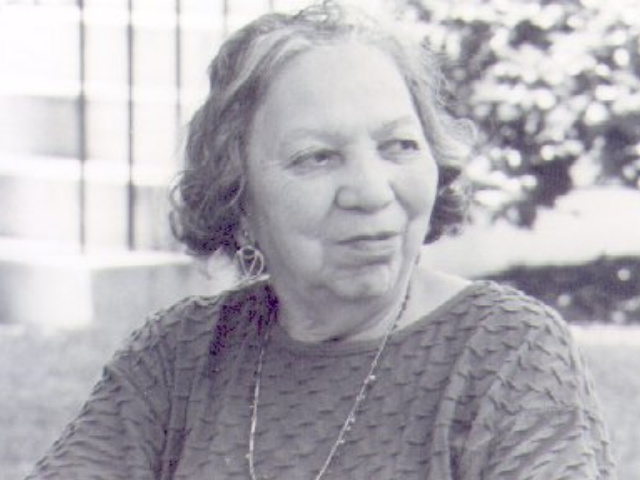
Carrie Allen McCray. Image from University of South Carolina Aiken.
(1913-2008) McCray was born in Lynchburg, Virginia, to William Patterson Allen and his wife, Mary Rice Hayes. When she was seven, McCray’s parents moved the family to Montclair, New Jersey. Growing up in Montclair, McCray was conscious of racial tension, including a threatened cross burning. She also enjoyed a strongly supportive family environment established by her parents, who were active members of their community and deeply committed to cultural and civic involvement. After high school McCray attended Talladega College in Alabama, earning a B.A. degree. She received a master’s degree in social work from New York University. In 1940 she married Winfield Scott Young. The couple had one son before the marriage ended in divorce in 1945. Her second marriage, to the South Carolina civil rights leader John H. McCray in 1964, lasted until his death in 1987. She has made her home in Columbia since 1986.
Although she spent the bulk of her adult life thinking of herself as a teacher and social worker, McCray was aware that she loved to write. She did not start to think of herself as a professional writer until she reached the age of seventy-three, at roughly the same time she took up residence in Columbia. Though best known as a poet, McCray is also the author of a personal memoir, Freedom’s Child: The Life of a Confederate General’s Black Daughter, which details her discovery that her mother was the child of a Confederate general and his black servant. The book stands as an important contribution to the art of memoir in America as well as to the American tradition of facing social injustice in literature as well as in life.
McCray’s published works include “Ajos Means Goodbye,” a story published in Beyond the Angry Black (1966); “The Black Woman and Family Roles,” an article included in The Black Woman (1980); and the poetry chapbook Piece of Time (1993). Her poetry has been published in magazines and journals including Ms. Magazine, River Styx, Point, and The Squaw Review. Her work has been anthologized in Moving beyond Words (1994) and The Crimson Edge: Older Women Writing (1996).


